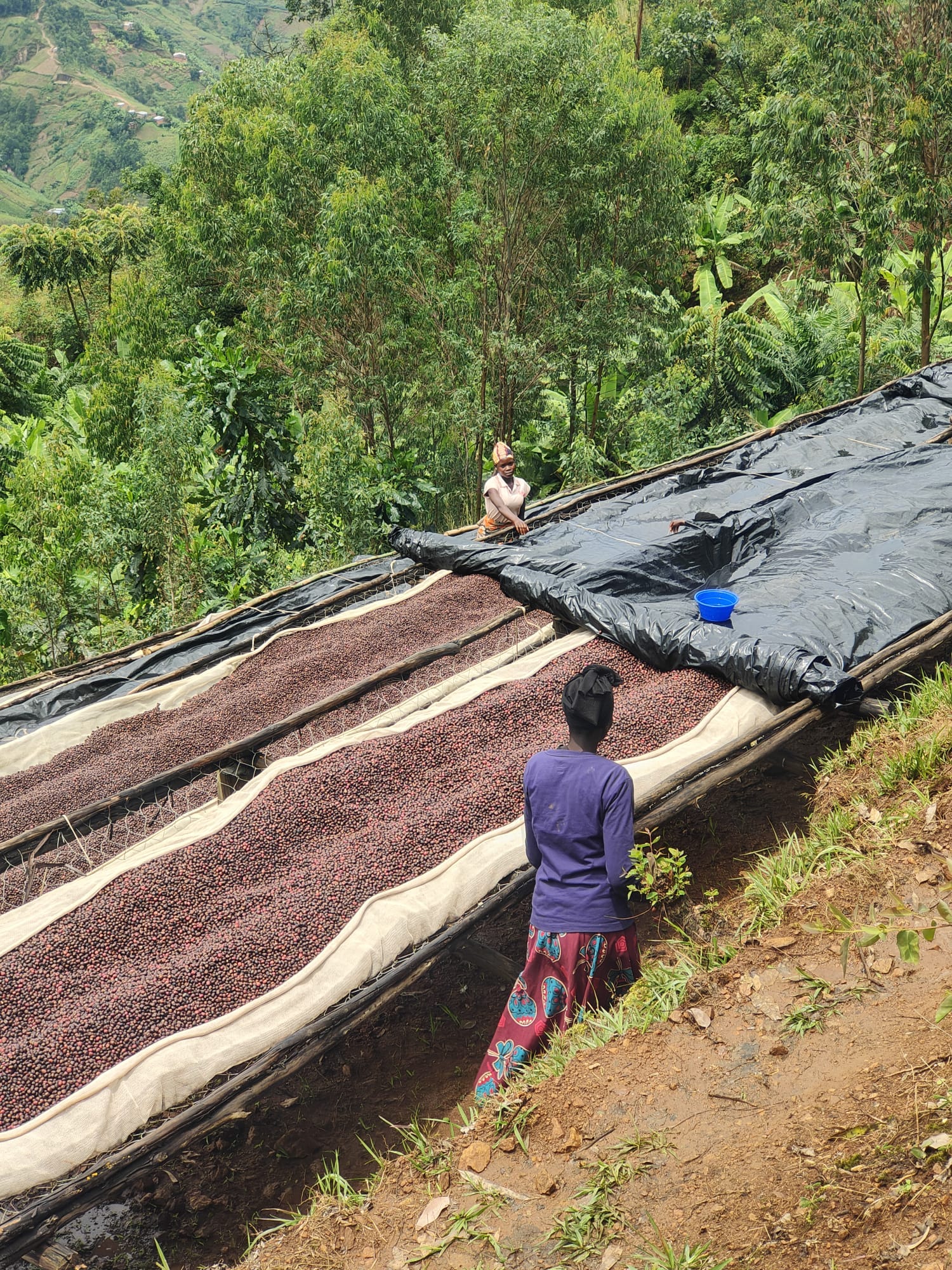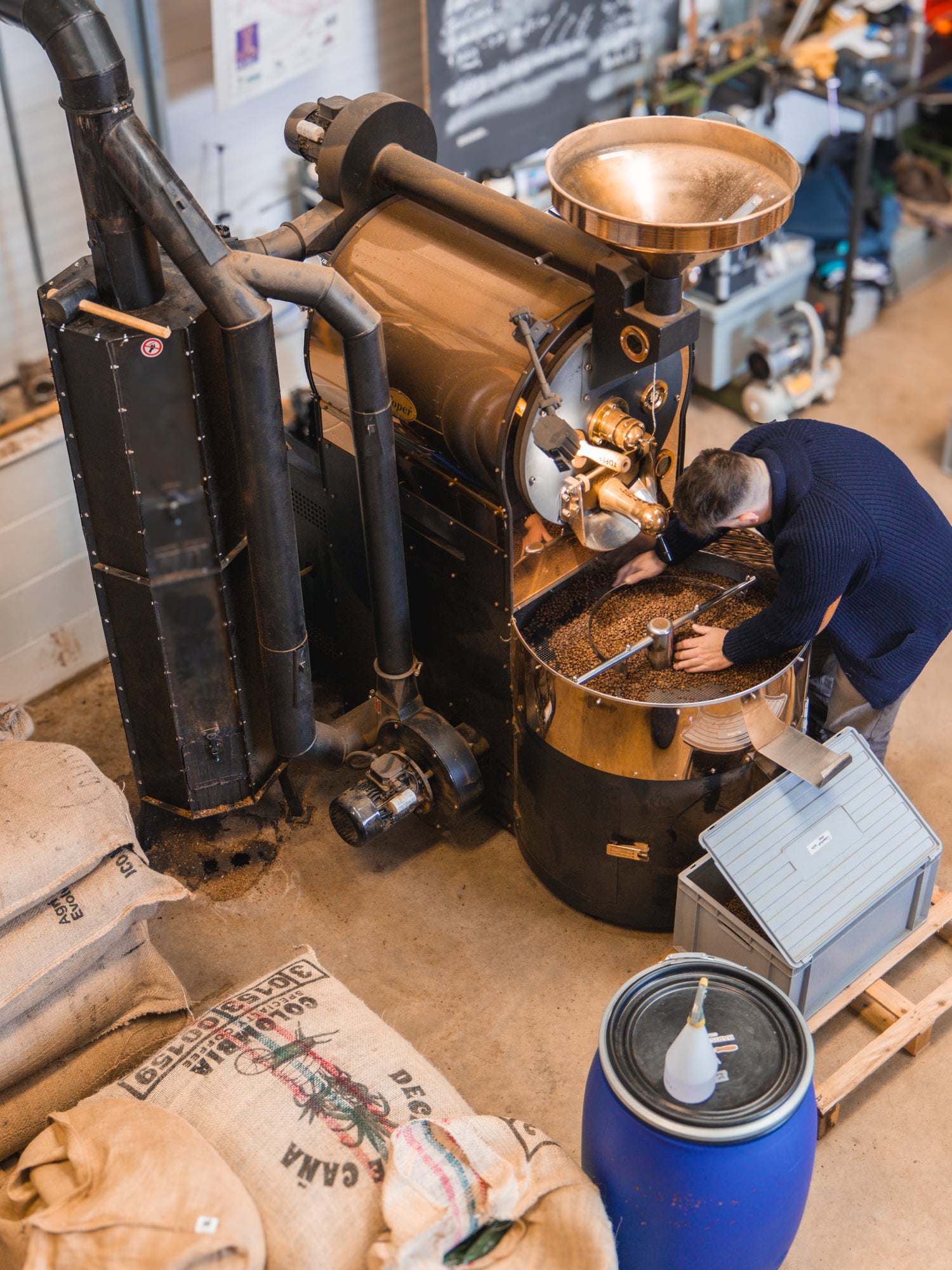
What is Speciality Coffee?
There are two main varieties of coffee, robusta and arabica. Within both of these families are a great number of varietals. Coffee production is similar to wine in this respect. Each varietal has it’s own properties and is chosen by a grower because it thrives in their region, has a particular flavour profile or they want to experiment with something new.
Coffee is graded for quality on a scale of 0-100 at the green and roasted stages by experts called Q Graders. They are looking at a variety of indicators including number of defects in the sample of green beans, then, once roasted, the clarity and depth of flavour, among many other factors.
Speciality coffee refers only to coffees that are graded 80+. They’re almost exclusively arabica (although there is on-going research into improving robusta) and have the following characteristics:
- Very susceptible to the changing climate so needing lots of care, attention and a hands on approach by growers.
- Grown at higher altitudes so often on smaller farms and, owing to the low yield from each tree, crop diversification is common. This is great for soil health, plus, varying crops supports local bird life and adds to the range of products the farmer can sell.
- Every stage requires expertise and is very labour intensive. Growers must monitor the health of their trees, judge when to harvest as the cherries ripen at different stages and get their crop to a processing station quickly before the fruit starts to rot. During processing and depending on the method used, cherries are monitored by eye for signs of mould and turned by hand for consistency. Removing the fruit from the bean is done by machine but often these are operated by hand and again, human intervention is needed to spot and remove unripe berries, defective beans etc. Drying the beans is again closely monitored by eye with beans turned as needed to ensure consistent drying.
- Small-holders are very common in speciality coffee farming. As each tree has such a low yield, cooperatives have formed in many growing regions. Small-holders contribute their crop to the co-op, it’s graded and added to other crops from the same area and of the same varietal and quality. The co-ops often have their own processing plant so all the coffee can be processed together and organised for sale to exporters.
- Sustainability is a huge concern in speciality coffee as the changing climate impacts the plants massively and is, even now, causing huge problems for some of the world’s biggest producing regions such as Brazil. The exporter/importers we work with support growing communities to invest in sustainable agricultural practices and processing techniques such as reducing water usage and finding ways to use waste products.
- Small-holders tend to be family businesses who can manage their farms without vast workforces which minimises the risk of forced labour. They are also invested in their communities, creating jobs, using profits to improve access to education and re-investing in sustainable coffee production and processing to build long-lasting business opportunities.
- Speciality coffee is more expensive than commodity coffee which is lower quality and grown on a huge scale. It’s massively labour intensive, the plants tend to be finickity and higher-altitude farms have less room to grow on. It’s also imperative to us that farmers are paid properly for their crops. The industry as a whole has been affected by escalating fuel prices and congested shipping meaning the costs keep increasing but we’re not willing to compromise on quality and we want to keep supporting the farmers who are growing incredible coffee

Why buy speciality coffee?
When we first started Baristocracy we had this kind of conversation a lot with business advisors and other well-meaning people who just didn't understand what we wanted to do. They looked at huge multinational coffee roasters and smaller but very successful more local businesses and wondered why we wouldn't follow in their footsteps. Buy cheaper commodity coffee, roast it and sell it with an impressive mark up - it's a business model that undoubtedly works. This was, however, never an option for us. Alex, having grown up working with exceptional quality coffees, having met growers, tasted hundreds of different coffees, knows how delicious coffee can be and refuses to compromise on quality.
We want to buy green coffee from fellow small businesses. We want to support their work and the speciality coffee industry as a whole which has to weather a variety of storms, both literal and otherwise, on a seemingly never-ending cycle. The pay-off is a kaleidoscope of flavour and other sensory experiences which never fails to surprise and delight.
